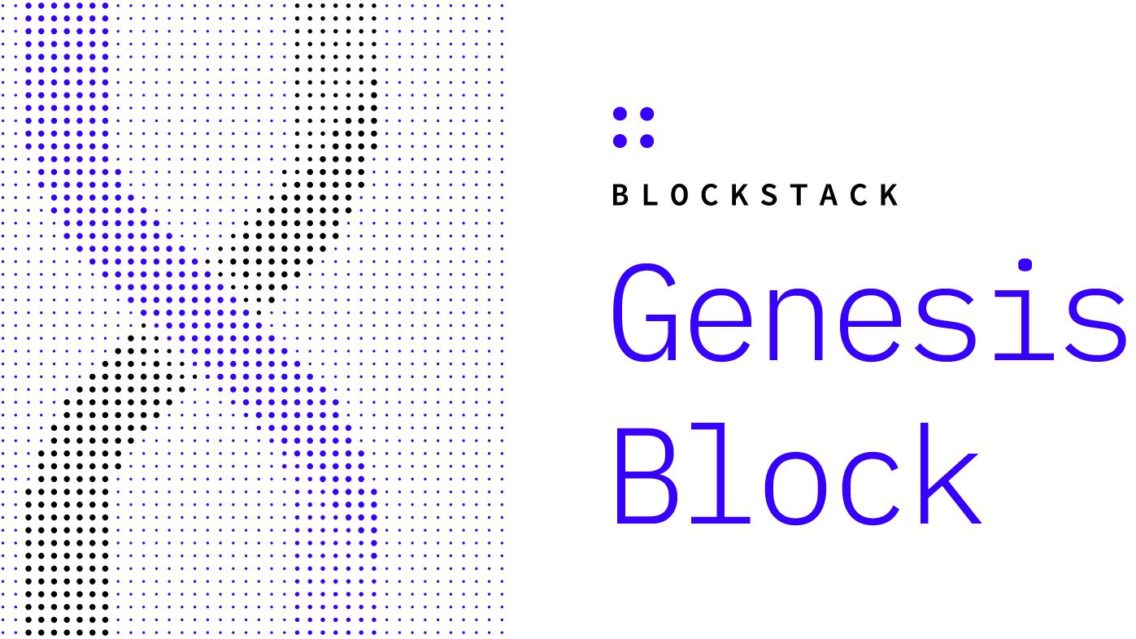Today, we’re excited to announce details for the hard fork that will introduce the genesis block of the Stacks blockchain. The launch of the Stacks blockchain marks a new era for the Blockstack ecosystem: it is custom designed for the Blockstack network with the goal of enabling developers to easily build decentralized apps that can scale. The hard fork is scheduled to occur on October 30th.
Since 2015, it has been Blockstack’s policy to execute an annual hard fork to improve Blockstack’s consensus rules and release major features. This year’s hard fork is an especially exciting milestone for the ecosystem because it distributes the first Stacks tokens to existing purchasers and recipients.
This hard fork launches the Stacks blockchain v1, and enables the following two features for the Blockstack network:
(a) Registration of all digital assets and smart contracts for registering digital assets with the Stacks token.
(b) A genesis block that distributes Stacks tokens to existing purchasers.
A full technical description of the upgrade is available on the Blockstack forum.
The genesis block will deliver 395M Stacks tokens to purchasers of SAFTs and interests in two private funds that were sold in our 2017 Accredited Sale. Tokens in the 2017 Accredited Sale will be distributed to the respective wallet addresses of these purchasers, although recipients of these tokens will not be able to transfer the tokens out of their wallets until a year and a day after the closing of their original investment. The genesis block will introduce a total of 1.32 billion Stacks tokens to the Blockstack network — some of which have been sold to other Blockstack stakeholders. These sold tokens will be distributed as part of this hard-fork. We anticipate that holders of non- binding vouchers may have an opportunity in the future to purchase currently unsold tokens.
The genesis block hard fork will activate at block 547921 (on October 30th, 2018 around UTC+6).
New Functionality
This version of the Stacks blockchain lays the foundation for the implementation of future functionality, that we anticipate will be introduced as part of hard forks in 2019 or later. These additional functions include the following:
1) The Stacks blockchain will introduce a new scalable consensus algorithm to increase the number of transactions it can process. This consensus algorithm is planned to be introduced in additional hard forks in 2019. The algorithm uses a new type of mining, a variant of proof-of-burn mining, whereby miners destroy another cryptocurrency (e.g. Bitcoin) to participate in the leader election algorithm. Stacks miners are incentivized to participating in the mining process to keep the network alive and healthy.
2) The Stacks blockchain will support truly decentralized mobile applications by removing the need to trust a remote Blockstack Core node. Instead, it will be possible for light clients to calculate the economic weight of different Stacks blockchain forks, and identify the fork with the most economic activity. Today, light clients need to rely on other trusted sources for fork selection and cannot make that decision independently.
3) Blockstack currently supports relatively simple smart contracts that are used to register digital assets on the network. The Stacks blockchain v2 will support general-purpose smart contracts written in a non-Turing-complete language that we’re developing. We plan to release more details for our new programming language in a few months. As always, you can track the implementation progress in our GitHub organization, on the forum, or the roadmap.
Be part of the ecosystem
We’re increasing the number and distribution of Blockstack meetups taking place around the world as part of the Decentralizing the World Tour, so if you’re a developer looking to get involved, please consider joining one. This is an exciting time for our open-source ecosystem, we’d love for you to be a part of it! You can follow us on Twitter at @blockstack or subscribe to our newsletter for any updates.
This blog post contains forward-looking statements, including statements regarding Blockstack PBC’s plans for the Stacks token and blockchain. Forward-looking statements are subject to risks and uncertainties that could cause actual results to differ materially, and reported results should not be considered as an indication of future performance. Potential risks and uncertainties that could change our actual results include, but are not limited to, risks associated with: the failure of Blockstack to successfully launch the genesis block; technical obstacles in further developing the Stacks blockchain and potential failure of its underlying technology; the failure of the new functionality of the Stacks blockchain to function as intended when it is introduced; and potential attacks on the Stacks blockchain. These forward-looking statements speak only as of the date hereof. Blockstack PBC disclaims any obligation to update these forward-looking statements.
